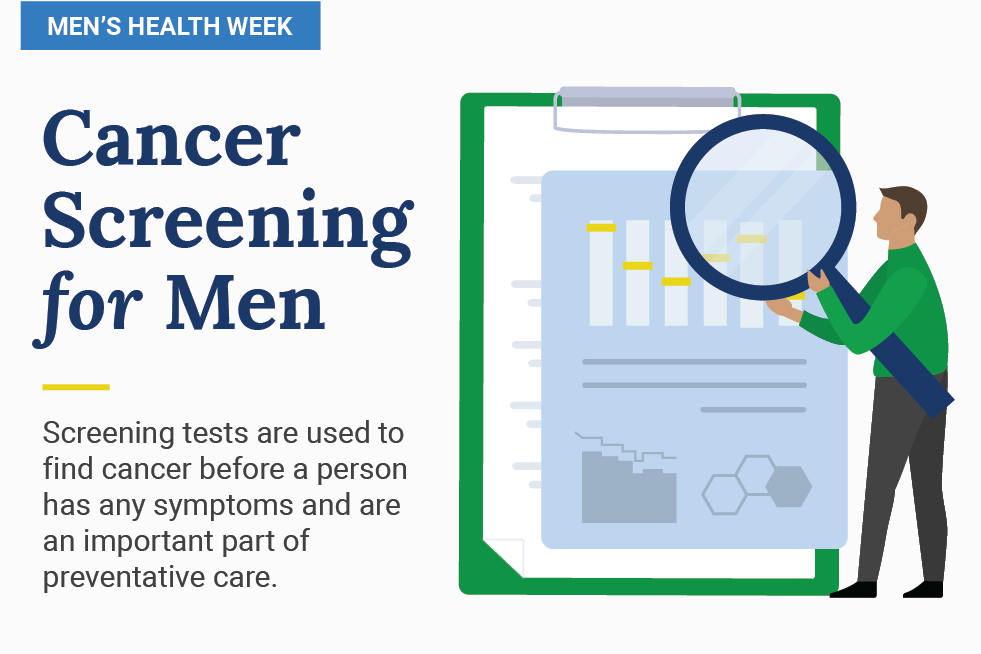This Men’s Health Week, we’re taking a look at the cancer screening tests recommended for men. Screening tests are used to find cancer before a person has any symptoms and are an important part of preventative care.
Below are the American Cancer Society’s recommendations for when men should talk to their doctor about screening for certain cancers.
Colon and Rectal Cancer
Colorectal cancer is the third leading cause of cancer-related deaths in the United States.
The American Cancer Society recommends regular screening for colorectal cancer at age 45 for those people who are at average risk. Screenings should continue through age 75 for those in good health and individuals ages 76-85 should talk to their doctor about whether continued screening is right for them. Screening for people over 85 is not recommended.
Screening for colorectal cancer can involved a stool-based test or a visual exam (colonoscopy). Talk to your doctor about which test(s) maybe right for you.
Lung Cancer
Lung cancer screening is recommended for individuals who are at high risk for lung cancer. High-risk individuals are those who meet the following criteria:
- Are aged 55 to 74 in fairly good health, and
- Currently smoke or have quit smoking in the last 15 years, and
- Have a 30-pack-year smoking history (e.g. 1 pack per day for 30 years or 2 packs per day for 15 years)
For more information about lung cancer screening, see our blog.
Prostate Cancer
According to the American Cancer Society, research has not yet proven that the potential benefits of prostate cancer testing outweigh the harms of testing and treatment. Beginning at age 50, it is recommended that men speak with their healthcare providers about whether testing is the right choice for them.
It is also recommended that if you are African American and have a father or brother who had prostate cancer before age 65 that you should talk to your healthcare provider beginning at age 45.
Take Care of Your Health
Take a look at our blog and infographic about healthy choices you can make to lower your cancer risk.


Recent Comments